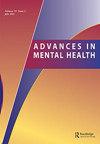Key stakeholders’ recommendations for improving Australian news media reporting of people with severe mental illness, violence and crime
IF 1.7
Q3 PSYCHIATRY
引用次数: 6
Abstract
ABSTRACT Objective Media portrayals of severe mental illness, including schizophrenia, psychosis and bipolar disorders, are often negative or prominently linked to violence or crime and consequently have a negative influence on public attitudes and behaviours. This study aimed to determine key stakeholders’ recommendations for improving news reporting of severe mental illness in the context of violence and crime. Method Semi-structured interviews were conducted with Australian key stakeholders including people with lived experience of severe mental illness (n = 12), news media professionals (n = 12) and mental health professionals (n = 8) with expertise in media reporting of mental illness. Data were analysed thematically. Results Recommendations for improving news reports of violence and crime were consistent with existing guidance for reporting on mental illness more generally. This covered inclusion of positive stories of the lived experience of severe mental illness, avoiding undue prominence of severe mental illness, and discussing underlying broader social issues. The importance of improving media professionals’ understanding of mental illnesses such as schizophrenia, psychosis and bipolar disorder was emphasised. Additional supports and resources were acknowledged as being necessary to facilitate change to media portrayals. Incentives for improving media portrayals barriers and enablers were also discussed. Discussion These findings indicate that it would be useful and feasible to implement guidelines for media reporting on severe mental illness that provide specific and detailed guidance for reporting on violence and crime. Feedback from participants has already informed the development of these guidelines, and the findings of this study will inform their implementation to help ensure widespread dissemination and uptake.主要利益相关者关于改善澳大利亚新闻媒体对严重精神疾病、暴力和犯罪患者的报道的建议
媒体对严重精神疾病的描述,包括精神分裂症、精神病和双相情感障碍,往往是负面的或与暴力或犯罪显著相关,从而对公众的态度和行为产生负面影响。本研究旨在确定主要利益攸关方对在暴力和犯罪背景下改善严重精神疾病新闻报道的建议。方法对澳大利亚的主要利益相关者进行半结构化访谈,包括有严重精神疾病生活经历的人(n = 12)、新闻媒体专业人员(n = 12)和具有精神疾病媒体报道专业知识的精神卫生专业人员(n = 8)。数据按主题进行分析。结果改进暴力和犯罪新闻报道的建议与更普遍地报道精神疾病的现行指导是一致的。这包括收录严重精神疾病生活经历的积极故事,避免过分突出严重精神疾病,并讨论潜在的更广泛的社会问题。会议强调了提高媒体专业人员对精神分裂症、精神病和双相情感障碍等精神疾病的理解的重要性。会议确认需要额外的支持和资源,以促进改变媒体的描述。还讨论了改善媒体描述、障碍和促成因素的激励措施。这些调查结果表明,为媒体报道严重精神疾病提供具体和详细的指导,为报道暴力和犯罪提供指导,将是有用和可行的。参与者的反馈已经为这些准则的制定提供了信息,这项研究的结果将为这些准则的实施提供信息,以帮助确保广泛传播和吸收。
本文章由计算机程序翻译,如有差异,请以英文原文为准。
求助全文
约1分钟内获得全文
求助全文

 求助内容:
求助内容: 应助结果提醒方式:
应助结果提醒方式:


